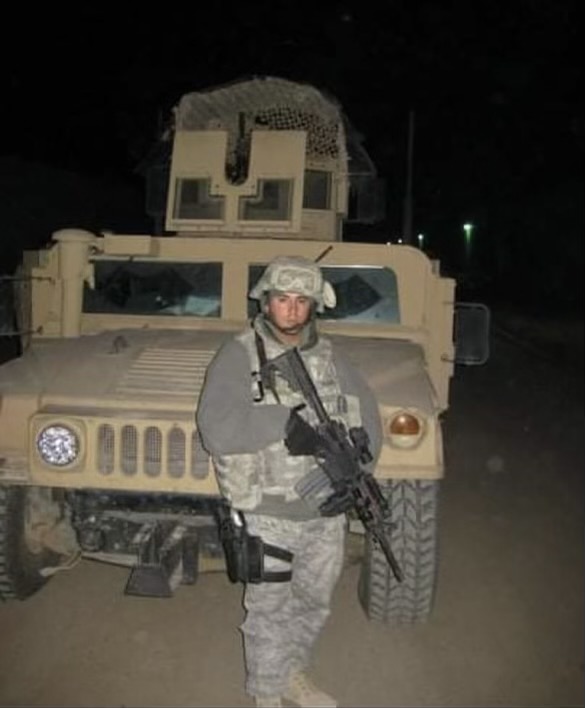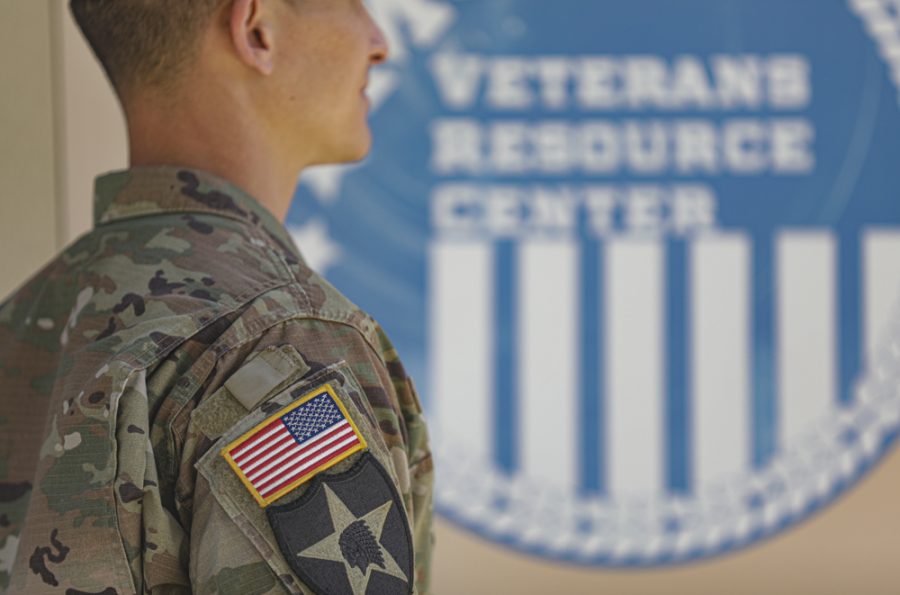The U.S. Withdrawal: Perspective from an Afghanistan Refugee and U.S. Veteran
U.S. Army Staff Sergeant Chris Soeung poses in front of the Veterans Resource Center on Thursday, Oct. 21, 2021 at Moorpark College, CA. Photo credit: Ryan Bough
November 4, 2021
In February of 2020, the United States announced the ultimate decision to withdraw the U.S. troops from Afghanistan, sparking an array of perspectives and concerns that increasingly grew once events unfolded.
In late August, U.S. Troops were set to completely withdraw from Afghanistan after a 20-year-long war. While the evacuation left many Afghans scared for the fate of their country, thousands were able to evacuate as refugees.
Jazz Cannon is an Afghanistan refugee and activist who has been in the United States for nearly 10 years. The activist has been vocal in spreading awareness on and advocating for women’s rights in Afghanistan.
According to Cannon, she and her family migrated from Afghanistan to Pakistan, where they had lived in exile for 10 years. After emigrating to Canada with her family, Cannon eventually arrived in the United States in 2012 where she later became a U.S. citizen this year. She noted the new sense of freedom she experienced upon arriving.
“I was happy that I was free,” said Cannon. “I was happy that I didn’t have to be afraid of being captured, you know. But, as far as understanding my way of what it’s like to live in the United States, that took a very long time.”

Although living in the United States has opened the door for new possibilities in Cannon’s life, it has also come with new challenging obstacles. The activist claimed to have faced extreme cultural differences that took time to adjust to, given that she had previously lived a life where women were severely oppressed and unable to make personal decisions.
“I’ve never made any decision in my life until I arrived here in the States,” said Cannon.
Cannon grew up in a war zone where she noted that every day her family was approached with tragic news regarding the death or disappearance of a loved one. Cannon’s own experiences have played a part in how she feels about the United States’ decision to remove the U.S. troops from Afghanistan.
“For me to see both ends of the spectrum, I saw the families that were crying for help trying to get out,” stated Cannon. “They know what the Taliban would bring them.”
Although the activist understands a decision had to be made, she still fears for those who will face the aftermath; especially the women.
“Many times I say, you know, when all hope is lost that’s when you find true freedom,” said Cannon. “And, for them, it’s death.”
Cannon articulated gratitude for the United States servicemen and women who lost their lives during the Kabul Airport attack on Aug. 26. She specifically conveyed gratitude towards Sgt. Nicole Gee, who was photographed with a young Afghan child just before being killed.
“She was feeling the compassion and the love and she felt like ‘I’m here to rescue this child no matter what the mission is,’” expressed Cannon. “But, she didn’t know that two days later she was willing to sacrifice her life.”
To learn more about Cannon’s story visit her website or TikTok.
Ventura County Resident and former U.S. Air Force Staff Sgt. Julio Aguilar provided another view on the withdrawal. Aguilar joined the U.S. Air Force in 2004 and served for six years where he completed a tour in Afghanistan and Iraq.

While Aguilar supported the decision to leave Afghanistan, the veteran felt the way the U.S. exit was conducted created dangerous conditions for those left behind and was not done strategically.
“The execution of the withdrawal was really bad,” said Aguilar. “There was going to be some unfortunately bad events, but not to the point that it went down.”
Aguilar emphasized the vast difference in the educational opportunities available in the United States and Afghanistan.
Aguilar specifically highlighted the education of Afghan women and what the future could possibly hold for them, especially among the women who were working towards an education during the midst of the withdrawal.
“As far as women’s rights, women’s rights are gone,” said Aguilar. “That’s one of the biggest impacts right now.”
Moorpark College Student and U.S. Navy veteran Benjamin Scotti provided a third perspective. Scotti was a student-worker for the Veterans Resource Center at Moorpark College for two years, but before that, he served in the U.S. Navy for six years.
According to Scotti, the events that unraveled due to the U.S. withdrawal did not come as a surprise.
“To have won it and ended in the way that we wanted to, would have meant winning the hearts and minds,” said Scotti. “And we never really did that in the way that we wanted to.”
When it comes to the VRC at Moorpark College, Scotti believes they have what it takes to ensure that student veterans who are affected by the recent events are receiving the support they may need; whether that is emotional or educational. Scotti specifically shared about the dedication Johnny Conley, the Director of Student Equity, has towards the veterans.
“Johnny Conley is very involved and likes to make sure that all of his vets get what they need and are taken care of,” stated Scotti.







